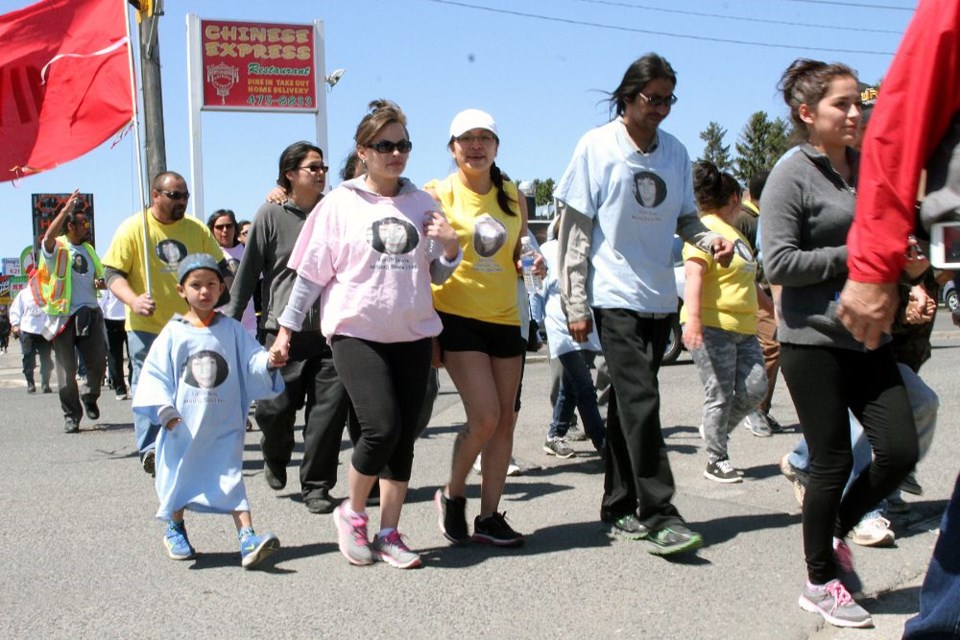Their walk won’t bring back Sarah Skunk, Rena Fox, Viola Panacheese or any of the other 1,200 or more missing and murdered indigenous women.
But a hearty group of Mishkeegogamang First Nation residents are hopeful their 650-kilometre trek to Thunder Bay will draw further attention to the plight of victims and convince the federal government of the need for a national inquiry.
Fox was killed in 2003 and her murder has never been solved. Panacheese disappeared in 1991 while Skunk, also a Mishkeegogamang resident, has been missing for 20 years.
Also not to be forgotten are Jemima Mulholland, Lena Lawson, Thomas Lyons and Evelyn and Sophie Wassaykeesic.
It was Skunk’s disappearance that spurred this year’s lengthy walk and the chief said it’s her sincere hope their efforts will help exact change.
“The government is not giving it the importance that it needs,” she said, before embarking on the final leg of their journey, an estimated three-hour walk from Arthur Street West to a residence on Angus Street, Skunk’s last home before she went missing in 1995.
“When you have 1,200 women unexplained deaths and missing in this country, it requires a real hard look at how we think of women and especially indigenous women. The real need and the conditions that lend to women leaving their communities really need to be looked at.”
About 20 walkers began the trek on Mother’s Day.
They were joined in Thunder Bay by about three dozen more supporters.
Gray-McKay said it’s time for the truth to be told about deplorable conditions on many reserves across Ontario and Canada, reasons why many choose to depart their home communities for the bright lights of bigger cities.
Unused to the new way of life, many fall through the cracks.
“The fact that housing is such an issue, there’s lack of service, lack of resources, a lack of everything – and the violence that there is, is why women leave. That needs to be looked at and that’s why it’s so important to go into something like an inquiry that would look at those kind of issues. The underlying factors need to be looked at.”
Gray-McKay said the biggest thing she’s learned while on the walk was the power of the human spirit, how powerful First Nations are as indigenous people and how much they love.
“And I think every step of this journey as we walk has been walked with a step of love.”
The group was joined by several members of Nishnawbe Aski Nation, including Deputy Grand Chief Alvin Fiddler.
The symbolism of the Mother’s Day start was what stood out, he said.
“The fact that so many of their own community members are still missing, including here in Thunder Bay, that’s why they wanted to end their journey here, to bring attention to their community members who are still missing or the homicides that are still unresolved.
"To have family and relatives, including children, involved is a powerful reminder to Canada that they need to do the right thing and have this national inquiry on murdered and missing women,” Fiddler said.
